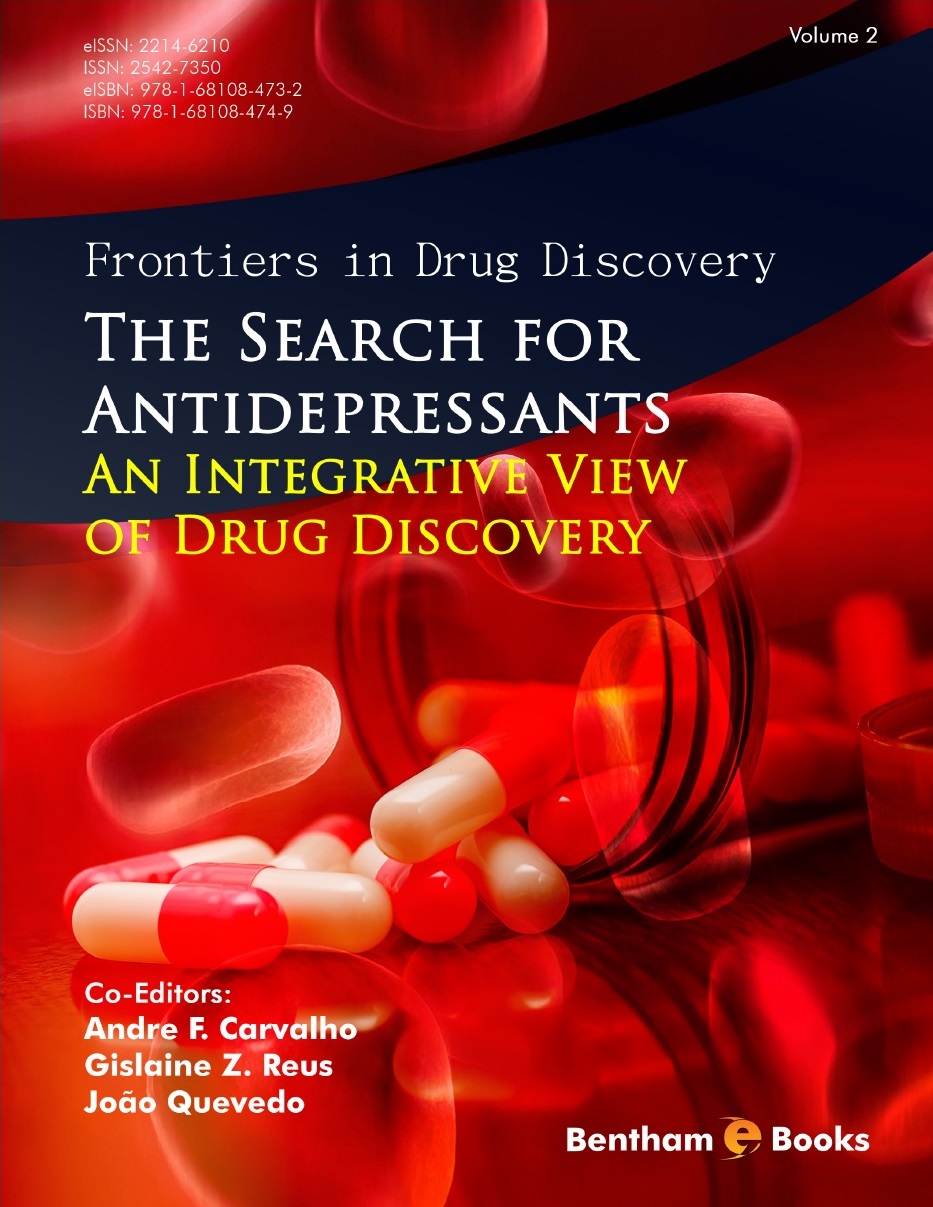This eBook was conceived after an invitation by the Bentham Science Publishers due to the necessity to review novel antidepressant alternatives.
The prevalence of people with major depressive disorder (MDD) has increased drastically worldwide. In addition, many patients do not respond to classic antidepressant treatments. However, in the last years, new strategies have been studied in experimental and clinical approaches.
The development of novel treatment of MDD would decrease the morbidity and mortality, and consequently the economic burden associated with hospital. Some of these new treatment alternatives are associated with a fast antidepressant effects and low side effects compared to classical treatments. Several studies indicate that pathological mechanisms involved with MDD development are not only based on monoaminergic system, but also with metabolic disturbances, inflammation and a decrease in protein involved with neuroplasticity.
This eBook aims to contribute to an integrated understanding concerning innovative alternatives to treat MDD. It is based on cutting edge research and the outcome will shed light on the most appropriate approach to treat resistant-treatment MDD patients. It gathers a wide range of topics on the subject and includes several chapters with original material.
Authors and co-authors represent a multidisciplinary team that includes scientists and professors with a vast experience in the area, from different universities and research institutions. It is an attempt to encourage the implementation of alternative approaches to the classic antidepressants for humans.
The eBook is organized in fourteen chapters: the general introduction is followed by a review devoted to experimental models, optogenetics therapy, the role of healthy human volunteers, monoamine oxidase-A, repurposed drugs, glutamatergic compounds, cognition, oxidative and nitrosative stress, melatoninergic pathway, neuropeptides, gut microbiota, metabolic disturbances, and plant-based drugs.
Ultimately, we would like to thank all authors that have actively contributed to this eBook, and all people that someway helped us to bring it to daylight, including our family, friends, students and colleagues.
Andre F. Carvalho
Associate Professor of Psychiatry
Head, Translational Psychiatry Research Group
Faculty of Medicine
Federal University of Ceara
Fortaleza, CE
Brazil
Gislaine Zilli Reus
Laboratory of Neurosciences
University of Southern Santa Catarina
1105 - Av Universitaria
Brazil
João Luciano de Quevedo
Center for Translational Psychiatry
Department of Psychiatry and Behavioral Sciences
Medical School, The University of Texas Health Science Center at Houston
Houston, TX
USA

